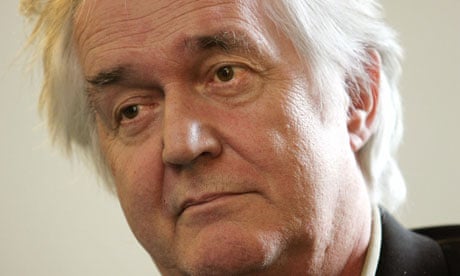The murder of a heat-seeking online columnist provides DC Simon Waterhouse and his wife, DS Charlie Zailer, with perhaps too many suspects—including a leading suspect so overburdened with guilt that she’s almost too convenient.
Whoever killed Damon Blundy put no end of thought into the job, arriving at Blundy’s home with a knife, a knife sharpener, a hazmat suit, and a roll of duct tape that was used to smother the victim only after he’d been stunned with the knife sharpener and the knife itself taped to his face. A note on Blundy’s wall, “HE IS NO LESS DEAD,” was written not in blood but in red paint the murderer also thoughtfully supplied. Less dead than who or what? wonder Simon and Charlie (The Carrier, 2015, etc.). Despite Blundy’s vast throng of enemies, whose numbers included Times columnist Keiran Holland, pot-smoking horror novelist Reuben Tasker, ex–MP Paula Riddiough, and virtually everyone else he’d ever mentioned in his column, suspicion quickly fastens on Nichola Clements, who’d been carrying on a long-term online relationship with the victim. Respectably married Nicki and the correspondent she’d known as Gavin had never met in the flesh (unless of course they had); instead they’d indulged their mutual appetite for sharing secrets by emailing each other 20 times a day. Agonized by shame and fear, Nicki finds even her brother, her mother, and her best friend arrayed against her, along with her own heavy conscience. But there are many more layers yet to be peeled.
Hannah, who plots rings around most of the competition, shares Ruth Rendell’s shivery conviction that there are still darker secrets than whodunit, how, and why.
Whoever killed Damon Blundy put no end of thought into the job, arriving at Blundy’s home with a knife, a knife sharpener, a hazmat suit, and a roll of duct tape that was used to smother the victim only after he’d been stunned with the knife sharpener and the knife itself taped to his face. A note on Blundy’s wall, “HE IS NO LESS DEAD,” was written not in blood but in red paint the murderer also thoughtfully supplied. Less dead than who or what? wonder Simon and Charlie (The Carrier, 2015, etc.). Despite Blundy’s vast throng of enemies, whose numbers included Times columnist Keiran Holland, pot-smoking horror novelist Reuben Tasker, ex–MP Paula Riddiough, and virtually everyone else he’d ever mentioned in his column, suspicion quickly fastens on Nichola Clements, who’d been carrying on a long-term online relationship with the victim. Respectably married Nicki and the correspondent she’d known as Gavin had never met in the flesh (unless of course they had); instead they’d indulged their mutual appetite for sharing secrets by emailing each other 20 times a day. Agonized by shame and fear, Nicki finds even her brother, her mother, and her best friend arrayed against her, along with her own heavy conscience. But there are many more layers yet to be peeled.
Hannah, who plots rings around most of the competition, shares Ruth Rendell’s shivery conviction that there are still darker secrets than whodunit, how, and why.




